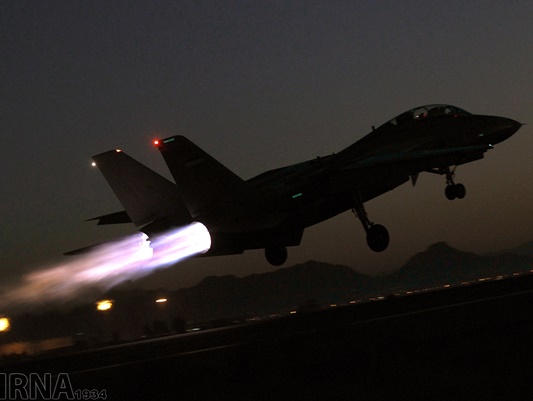The e-warfare exercises were held on Tuesday, the second day of ongoing drills codenamed Fada’eeyan-e Harim-e Velayat 6 (The Devotees of the Velayat Sanctuary 6).
Brigadier General Massoud Rouzkhosh, the spokesman for the maneuvers, said the Air Force used advanced communications systems and secure wireless or wire-connected networks, flight apparatus systems, and tactical systems during the drills.
The application of deceptive jamming methods against mock enemy radars were among the electronic warfare tactics employed by Falcon 50 aircraft on the second day, he said.
Later through the day, interceptor F-14 aircraft conducted aerial surveillance and other operations, while F-14 and MiG-29 fighters engaged in dogfights.
The drills also deploy domestically-built Sa’eqeh, F-4, F-5, and Sukhoi Su-24 jets, transport aircraft and unmanned aerial vehicles, as well as a wide range of projectiles, including smart bombs and laser-guided missiles.
Rouzkhosh said among the maneuvers’ points of strength were the amplification of the force’s firepower and the enhancement of its precision targeting capabilities.
Iran says its military might poses no threat to other countries, stating that its defense doctrine is based on deterrence.

